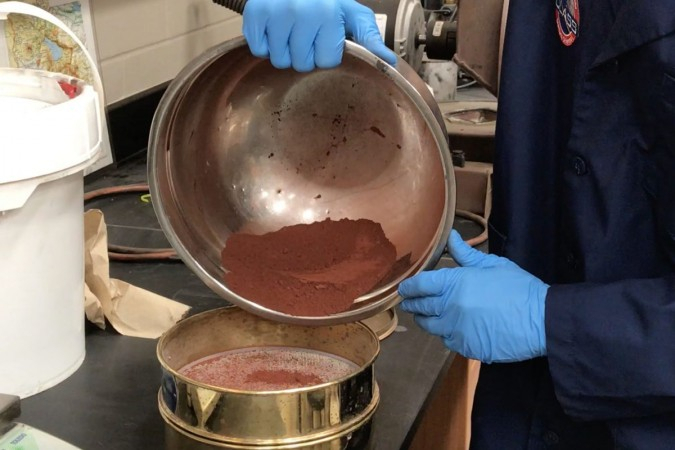
Although humans have managed to send rovers to Mars and get quite a bit of information about the Red planet; it doesn't seem like we will be able to get our hands on the Martian soil anytime soon, at least, not until Earth's space agencies launch manned Mars missions. So, since the scientists can't touch the soil on Mars, they are making it on their own.
The astrophysicists, from the University of Central Florida, have created a red soil, called Mars "stimulant." This soil has been developed to give researchers an approximate sense of what the Martian soil would be like. This artificial extraterrestrial-soil can become essential for the testing of the growth of the crops; as the scientists are planning to colonize Mars. Researchers will also be able to use it for the testing of how scientific exploration equipment might survive on the Martian surface.
A kilogram of this Martian red soil would cost $20. Reportedly, the Kennedy Space Center of NASA has already placed an order for the soil, informed the university.
"If we are going to go, we'll need food, water and other essentials. As we are developing solutions, we need a way to test how these ideas will fare," stated a researcher from the University of Central Florida's Planetary Sciences Group, Dan Britt. The researchers published their results in the journal Icarus.
Add to that, Martian soil is not the only artificial extraterrestrial soil that the university has developed. Apparently, they have also created moon soil and asteroid dirt and according to them, they both are in high demand.
Scientists hope this soil will become significant in the future researches because if humans do manage to build a colony on the planet that is around 140 million miles from Earth, they will have to produce their own food. So, they will surely have to make use of the Martian soils and minerals and for that, they need to know about it beforehand.
"You wouldn't want to discover that your method didn't work when we are actually there. What would you do then? It takes years to get there," said Britt.









